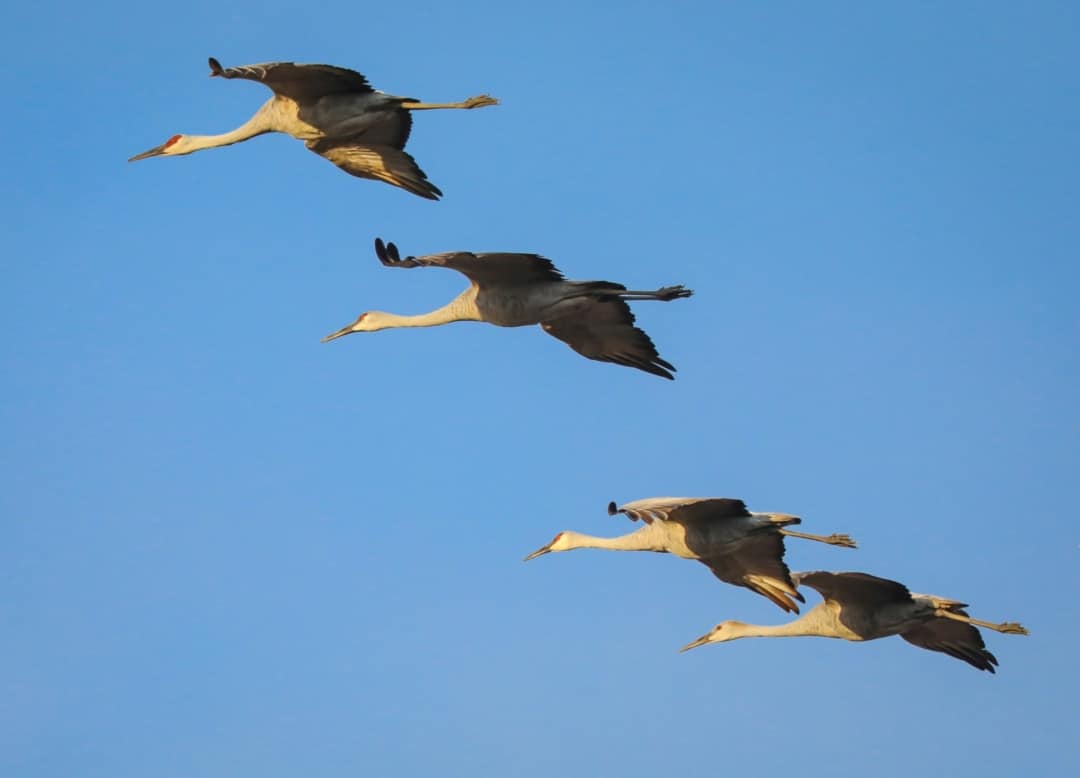The Cranes at Crex trip brings surprises this year
Saint Paul Audubon’s annual field trip to see the Sandhill Cranes at Crex Meadows took a few unexpected turns this year.
The drought of 2021 has dried up the feeding fields around Crex and according to Chase Davies, who led the group, along with Louise Eidsmoe, “There hasn’t been enough rain for the creeks that bring the water, much less the usual flooding that supports the cranes, other wildlife, and the vegetation that feeds them all.” The cranes were clearly roosting someplace else, and Crex Meadows staff suggested going ten miles south to the Gretturn Flowage in the Fish Lake WMA, where up to 5000 a night had been reported.
A line of 17 cars, some with first-time birders, caravanned to the new site, which provided a somewhat different viewing experience. “We were closer to the cranes than usual and the noise level was far greater than what we experience at Crex,” said Chase. “Scopes revealed massed choirs of birds in the distance and binoculars were actually useful.”
“Parked along the flowage road, we watched the arrivals and listened to the adults and a few young individuals socializing as they settled in for the night,” said Chase. “Everyone in our group stayed through sundown, which unexpectedly coincided with a huge orange harvest moon rise.” This year the cranes were joined by “over 50 Trumpeter Swans, a few coots, mallards and Canada Geese,” said Chase, “along with a Bald Eagle and a Harrier seeking supper from among the wetland plants. The dearth of small birds such as finches and sparrows, lingering warblers, and blackbirds was notable. Another difference – in fact totally unique in my years of Craning – is that the birds stopped coming in right at 7:15. As though the spigot had suddenly been turned off. Usually the sound of cranes streaming in continues through dusk until it’s too dark to see them on the wing. I left at 8:07 after 20 minutes of near total quiet other than an occasional goose honk, duck squawk, young crane tin whistle, or adult ‘garoo.’”




